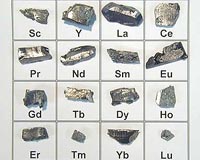 |
Shanghai (AFP) Feb 23, 2010 Jackie Chan croons on giant screens floating on Shanghai's river, Yao Ming beckons to shoppers from huge digital billboards on main thoroughfares and a waving blue mascot named Haibao is everywhere. On water and land, in homes and in schools, the propaganda machine in China's largest city has unleashed an unprecedented campaign to promote Expo 2010, which starts on May 1 and aims to draw up to 100 million visitors. China is trumpeting the Expo as a bookend to the Olympics -- twin showcases of the country's growing global clout. But observers say the event is a key moment for Shanghai's leaders, who stand to gain influence on the national stage if the mammoth six-month exhibition is a success. "I can't think of any time where a city has gone all out on the publicity front," said Tom Doctoroff, head of China operations for advertising firm JWT. "It clearly suggests that the event is important to the power structure." The campaign is aimed at keeping residents and officials upbeat about Expo, and to spread the message that this is an event on a par with the Olympics in terms of importance and prestige, Doctoroff said. "You are seeing an old (propaganda) reflex, multiplied by 10," he said. The campaign has not been limited to China. Last month, Chan rode an Expo float built in the New Year's Day Rose Parade in Pasadena, California -- seen on millions of television screens across the United States. "The ultimate goal of Expo is not only to boost the local economy, but to promote Shanghai, and China as a whole," said Chen Xinkang, the head of an Expo research institute at Shanghai University of Finance and Economics. "When a country is in the process of economic development, image is very important." Even the official Expo website boasts that its mascot Haibao -- who resembles a stubby version of the US television clay character Gumby -- is "ubiquitous". Their claim is not entirely hype. Haibao breakdances on screens in taxis, statues of the character line the streets, and he is on every dangling handle in subway cars and every street sweeping machine. Shrubs have been pruned to look like him and he stars in a television cartoon. Even at blood-donation drives, Haibao explains the rules. Suppressing unfavourable coverage is also part of the campaign. Censors ordered City Weekend, a local listings magazine, to rewrite an Expo cover story that went beyond "happy Haibaos", according to the publication's website. Videos of "Shanghai Doesn't Welcome You" -- a parody by punk band Top Floor Circus of the Olympics song "Beijing Welcomes You" -- have also been deleted from several websites. The Expo campaign has clearly resonated with city residents -- but maybe not in all the ways officials had hoped. "I'm not a fan of Haibao and it's all a bit too much for my taste," said Di Weirong, a woman in her 30s, though she quickly added she thought the event was important for China. At a new exhibition on Expo and image, Shanghai artist Ji Wenyu gave his less-than-flattering take, pasting an Expo motto on top of 100 older propaganda slogans and calling it "The History of the People's Republic of China". Yang Pei Ming, the director of the independent Shanghai Propaganda Art Poster Centre, said he is struggling to remember any of the Expo billboards or slogans. "I see people talking on television, but they use many empty words. People cannot catch the main meaning of what Expo is, so you should present a beautiful picture," Yang said. Stefan Landsberger, a Chinese history professor at Leiden University in the Netherlands, says while China's propagandists have updated their methods -- replacing communist role models with celebrities and using Twitter, even though it is officially blocked in China -- they cannot compete with private media. "All the talent that previously needed to work for the political system now has either become independent artists or have well-paying advertising jobs," said Landsberger, who has written extensively on Chinese propaganda. One place where Haibao has become a bona fide hit is the black market. Fake toy Expo mascots are on sale throughout the city for a tenth of the price of official ones. The phenomenon has inspired even more government propaganda. In a spot shown in subway cars, the mascot sees a shadowy figure selling fake Haibao toys. Enraged, Haibao chases the vendor down the street with a sword and arrests him.
Share This Article With Planet Earth
Related Links Global Trade News
 The world's next resource conflict
The world's next resource conflictBerlin (UPI) Feb 22, 2009 The next resource conflict could be about minerals and rare earth elements needed to fuel the green economy, as China, which supplies most of the minerals, is considering limiting exports. There is great hope for a green boom to transform the CO2-heavy world economy into one that is less dependent on fossil fuels and more sustainable. Experts envision solar panels and wind turbines to p ... read more |
|
| The content herein, unless otherwise known to be public domain, are Copyright 1995-2010 - SpaceDaily. AFP and UPI Wire Stories are copyright Agence France-Presse and United Press International. ESA Portal Reports are copyright European Space Agency. All NASA sourced material is public domain. Additional copyrights may apply in whole or part to other bona fide parties. Advertising does not imply endorsement,agreement or approval of any opinions, statements or information provided by SpaceDaily on any Web page published or hosted by SpaceDaily. Privacy Statement |